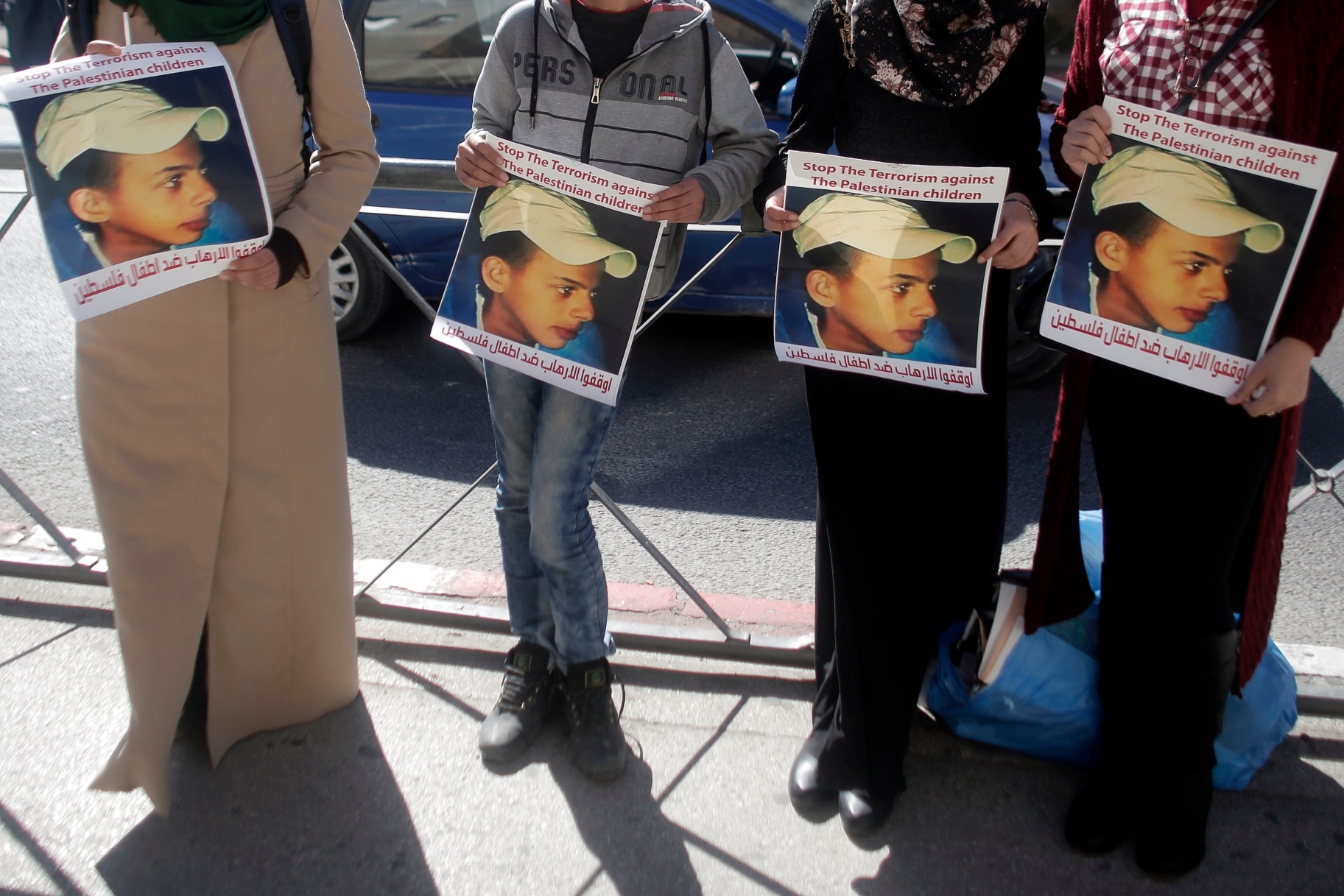Create a free profile to get unlimited access to exclusive videos, breaking news, sweepstakes, and more!
Who Was Mohammed Abu Khdeir, The Boy Whose Vicious Murder Is Chronicled In HBO's New Show?
The kidnapping and murder of Mohammed Abu Khdeir, a 16-year-old Palestinian boy, and its political ramifications are the center of HBO's "Our Boys."

The abduction and murder of 16-year-old Mohammed Abu Khdeir in the summer of 2014 shocked the East Jerusalem Shuafat neighborhood where he lived with his family.
In the early morning hours of July 2, 2014, Abu Khdeir was abducted while heading to a nearby mosque. He was forced into a car by his kidnappers, and although there were witnesses, they were unable to catch up to his captors. His burned body was found in a forest in Jerusalem hours later, with autopsy reports suggesting that he had been beaten, bound, and burned alive.
His death has been described as a revenge killing, a vicious act carried out in retaliation for the kidnapping and murder of three Jewish Israeli boys, who were kidnapped by Palestinian extremists and found dead the previous month. The three were buried the night before Abu Khdeir was snatched off the street amid growing tensions in the Israeli and Palestinian communities — tensions that eventually led to the 2014 Israel-Gaza conflict and is chronicled in the new HBO mini-series "Our Boys."
But before his death, Abu Khdeir was a normal teen. The fifth of seven children, he had two brothers and four sisters, according to The New York Times. His father, Hussein Abu Khdeir, owned an electric appliances store, and before he was killed, Abu Khdeir was a student at a vocational school, where he was studying to become an electrician, the outlet reports.
Abu Khdeir’s father, also an electrician, opened up about taking his son to work with him during an interview with Al Jazeera in 2015, a year after his son was killed.
“I took him to work with me sometimes, teaching him the skills to be an electrician. One day his teacher asked me, ‘Why are you training him in this work — Mohammed is going to be a comedian, he's always making the class laugh,’” he said.
Those who lived in the same neighborhood as Abu Khdeir praised him after his death, describing him as a helpful, generous child.
“Mohammed was a generous boy,” Abu Hassan, the owner of a local grocery store, told Al Jazeera. “He installed the television receiver here in the shop. He used to come by and change the channel for me when I couldn't work it out. We were shocked by what happened. Who does this? It's not human.”
Abu Khdeir’s death left his siblings afraid to leave the house alone, according to Al Jazeera. What happened to him also spread fear throughout the community at large, with many worrying that there would be more attacks out of revenge.
“It’s a very sad day. The guys in the street are so angry,” Muhannad al Jubara, a lawyer for Abu Khdeir's family, told CBS News in 2014. “The boys and girls right now cannot go outside their homes. They're afraid of kidnapping.”
Abu Khdeir was not specifically targeted, authorities have said. Yosef Haim Ben-David, one of three people who were convicted for Abu Khdeir’s murder, admitted to authorities that he went out seeking to abduct and murder an Arab person when he and his two co-conspirators — his two minor nephews, whose names have never been released — abducted Abu Khdeir, according to Al Jazeera. Ben-David and one of the nephews were both sentenced to life in prison, while the second nephew was given a 21-year-sentence, according to the Times of Israel.
Both minors were 16 — the same age as Abu Khdeir — when they carried out the crime, according to The New York Times.
Ben-David and one of the minors were also charged with attempting to abduct an 8-year-old Palestinian boy in East Jerusalem the night before Abu Khdeir was taken and killed, The Times reports. That kidnapping attempt failed when the child and his mother yelled and fought back, prompting the would-be abductors to retreat.













